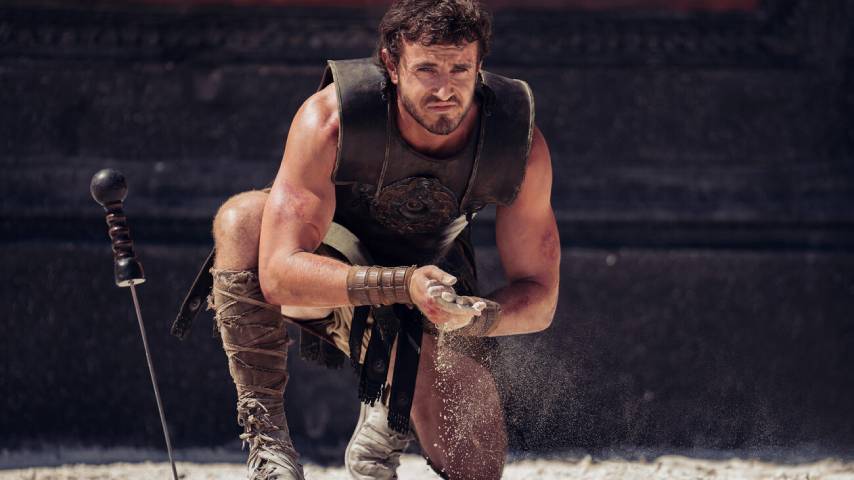Spoiler Space: The hero of Gladiator II is just an echo
What Maximus did in Gladiator echoes eternally through this do-over.
Photo: Paramount Pictures
Spoiler Space offers thoughts on, and a place to discuss, the plot points we can’t disclose in our official review. Fair warning: This article features plot details of Gladiator II.
As Ignatiy Vishnevetsky noted in our review of Gladiator II, Ridley Scott’s long-gestating sequel spends much of its runtime soft-sandaling around the true identity of its lead character, played by Paul Mescal. David Scarpa’s script treats this reveal like a weighty twist, but it would only ever feel that way if you were on the same intellectual level as the film’s CG were-baboons or syphilitic emperors.
Even if you stayed away from all the marketing, it’s clear from the start that Mescal’s Roman exile—initially called Hanno and living in a town on the northern coast of Africa—has a direct association with the characters of the 2000 film. That’s because what the original did in life echoes eternally through this sequel. That’s how so many sequels are now, not just grasping fruitlessly at the magic of what came before, but actively trying to replicate it through crass mimicry. Gladiator II is more obsessed with quoting Gladiator than The Sopranos’ Ralph Cifaretto.
How that manifests here goes far beyond the simple fact that Hanno is actually Lucius Verus Aurelius, son of Lucilla (Connie Nielsen), nephew of Commodus (Joaquin Phoenix), and grandson of Marcus Aurelius (Richard Harris)—true heir of Rome. This is perfectly clear well before he publicly recites Virgil to the little freaks occupying his rightful throne. But that poetry reading leads Lucilla back to his childhood bedroom where, lo and behold, that same verse is inscribed on the ceiling. It’s clear before we see a statue of Marcus Aurelieus as a young man, which looks like it’s just won a viral Paul Mescal lookalike contest. It’s clear before Denzel Washington’s character drunkenly explains Lucius’ identity to us in a ridiculous sequence seemingly included to reassure studio executives that the audience is going to get it, we swear. All of this comes punctuated by endless reminders that Marcus Aurelius had a grand dream for Rome that never came true, a grand dream that could perhaps be fulfilled by someone who shared his bloodline (and face). This element of Lucius’ complicated homecoming would have been plenty to motivate a character, if Gladiator II had any interest in Mescal’s character.
